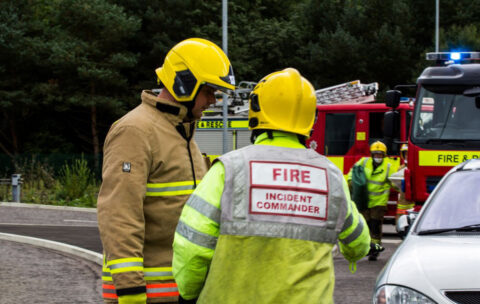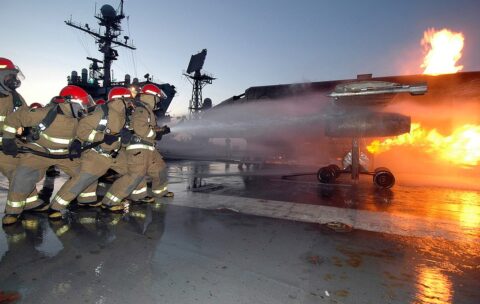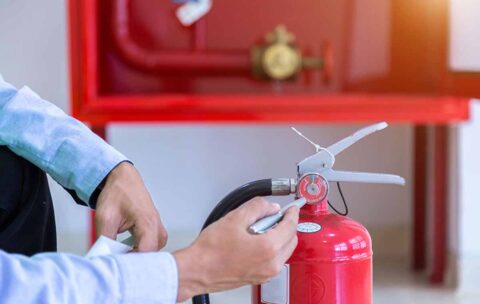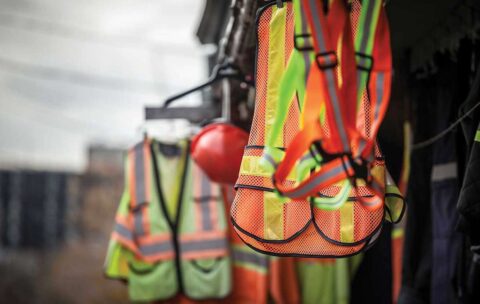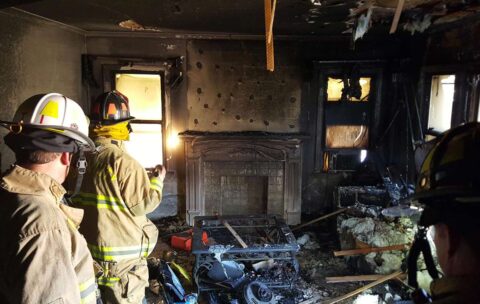ICS 300 – Intermediate Incident Command
Intermediate Incident Command (ICS 300) is a three-day course designed …
What you'll learn
Explain the ways in which the command and management components of NIMS support the management of an extended incident.
Describe the process of incident/event management for supervisors according to the Incident Command System (ICS).
Create Incident Action Plans for simulated incident situations.
Aircraft’s Fire Fighting Strategies & Tactics
This three-day course is designed to provide comprehensive coverage of …
What you'll learn
Discuss the responsibilities of airport firefighters.
Identify the safety considerations for ARFF (Aircraft Rescue and Firefighting) operations.
Explain the types of extinguishing agents used in ARFF operations.
Evaluate the effectiveness of ARFF operations in mitigating common aircraft emergencies.
Highlight the necessary rescue operations for an aircraft incident.
Demonstrate the use of an airport emergency plan when responding to airport emergencies.
Fire Safety: Rules & Practices
This three-day course is designed to cover various aspects of …
What you'll learn
Recognize the chemistry of fire and how different fuels can make fires more intense.
Perceive the personal risks associated with combustion.
Distinguish among various fire protection systems and their inspection and maintenance requirements.
Read and appreciate the importance of evacuation plans and procedures.
Inspection & Testing of Fire Protection Systems & Equipment
This 5-day course is designed to train fire and safety …
What you'll learn
Describes different types of fire protection systems and equipment, explaining their functions and suitability.
Discuss the standards, laws, and regulations that govern the reliability of fire protection systems.
Locate the inspection requirements for various fire protection systems and equipment.
Use standards and manufacturers' recommendations to optimize the ITM (Inspection, Testing, and Maintenance) programs effectiveness.
Occupational Risk Assessment
Ensuring safety is crucial in all aspects of life. In …
What you'll learn
Develop an understanding of workplace risk assessment and the associated legislation.
Identify different types of hazards that may affect workers in their work areas.
Learn how to conduct a risk assessment in the workplace.
Carefully select appropriate preventive measures for the hazards identified.
Hazard Identification and Control
The course explains the techniques that are widely used for …
What you'll learn
Demonstrate a comprehensive understanding of the role of safety and health professionals in finding sustainable solutions to hazards in industrial operations.
Explain the hazards that are commonly found in industrial facilities, temporary worksites, and service industries.
Discuss the hazards associated with industrial processes and how to apply the hierarchy of control to secure them.
Express the relevant regulations and standards that govern the control of industrial hazards.
Accident Investigation
This course focuses on the fundamentals and techniques of investigating …
What you'll learn
Define the key terms used in accident investigation.
Gather and analyze various data to determine the accurate sequence of events in an accident.
Identify the main factors involved in accidents and their significance.
Examine the interaction between hazards and human behaviors.
Utilize different tools available to safety professionals for conducting investigations.
Recognize the importance of accident investigations in overall safety programs.
Evaluate and develop a personal or company investigation base for safety through written and oral communication.
Fire Investigation
This course is for individuals with fire-fighting experience who want …
What you'll learn
Define the concept of origin and cause investigation and explain its purpose.
Describe a systematic approach to investigating a fire and explain how the scientific method is applied in the investigation process.
Explain the requirements for documenting a fire scene.
Discuss the importance of fire scene photography and the techniques involved.
Demonstrate how to conduct an initial investigation at a fire scene as part of a team.
Identify reliable sources of information for fire scene investigations.
Express the recommended procedural elements for conducting interviews.
Narrate the legal and liability issues related to fire scene investigations, course procedures, and testifying.
- 1
- 2

